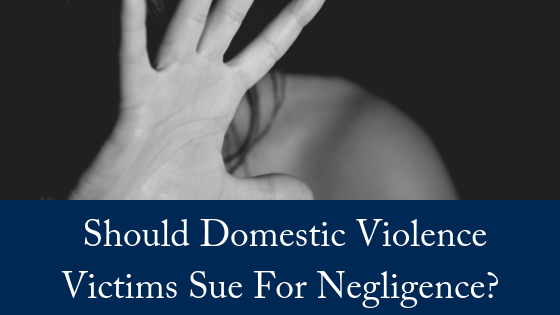This week the Victorian Supreme Court refused an application by the State of Victoria to strike out a claim by Tara Smith* and her three children. Smith claims Victoria Police officers were negligent because they failed to prevent numerous breaches of protection orders by her ex-partner, the father of the children. As a result, Smith and the children have suffered ongoing psychological harm.
In refusing to strike out Smith’s claim, the court has accepted that it is arguable police could owe a common law duty of care to specific victims of domestic violence to protect them from preventable harm. This is an important decision, because no Australian case has determined the question of whether police owe a duty of care to victims of domestic violence. Finding a duty of care is the first step in a civil action for damages in negligence. Without a duty of care there can be no liability in negligence, no matter how careless the defendant is.
Every year in Australia, more than 100,000 victims of domestic violence take out a protection order. Protection orders impose conditions on the perpetrator’s behaviour and victims rely on police to act when perpetrators breach those conditions. Domestic violence legislation and police policies and procedures are focused on victim safety – police failure to follow them can have tragic results.
Breaches of domestic violence protection orders have risen across every single Queensland police jurisdiction this year, figures tabled recently in parliament show. Of the 20 alleged domestic-related murders in Queensland this year, five came at a time when a domestic violence order had either been sought, was in place or had recently been served.
While the orders have been described as good in theory, police have often come under fire by domestic violence experts for not being quick enough to respond to breaches or for not taking the threat of domestic violence seriously enough.
 But the growth in recorded breaches across the state in the past year could reflect that is changing, Queensland University of Technology Associate Law Professor Molly Dragiewicz said, and that the increase represents a growing faith in them, moreso than an actual spike in violence.
But the growth in recorded breaches across the state in the past year could reflect that is changing, Queensland University of Technology Associate Law Professor Molly Dragiewicz said, and that the increase represents a growing faith in them, moreso than an actual spike in violence.
“It sounds bad when the numbers go up but it could be a good thing, people could be feeling more confident, I think with the attention in Queensland especially recently, people might well have increased confidence police will respond to reports of breaches,” she said.
“I think this negative publicity (about DVOs) is really interesting because they only work if police and courts and service providers are working together to have a really good integrated response. If there is no enforcement of the violation that’s obviously not helpful to anyone.”
In Smith’s case, the State of Victoria argued that Australian law does not, and should not, recognise that police owe a duty of care to individual members of the public to investigate violence or prevent certain conduct occurring, unless there are exceptional circumstances. The state also argued that imposing a duty of care on police would result in police owing conflicting duties to individuals versus the general public, it would divert police resources from their public duties and could result in “defensive” police practices.
When the case is finally heard, the court will need to consider the nature of the relationship between the police and Smith and her children, in deciding if the police owe a duty of care. The court will also consider the nature of the harm. So far, no Australian cases have found that police can’t be sued for negligence.
Smith argued that domestic violence legislation and policies give police significant powers to exercise control over a perpetrator of violence. They require proactive policing to protect victims. Smith’s ex-partner was a known re-offender of family violence and the police had the power and responsibility to enforce the protection orders. Smith alleged that the police failed to follow their own training and procedures when they failed to enforce the protection orders.
Had the Victorian Supreme Court decided to strike out Smith’s claim, the allegations of police negligence in this case could not be tested and given a full hearing in court. However, the court has allowed the important question of whether the police could owe a duty of care to a victim of domestic violence to be examined in light of all the facts and evidence of the case.
If you need assistance with domestic violence, separation or divorce, please contact our friendly, experienced team today. We offer a FREE, 10-minute phone consultation.
* Not her real name.

